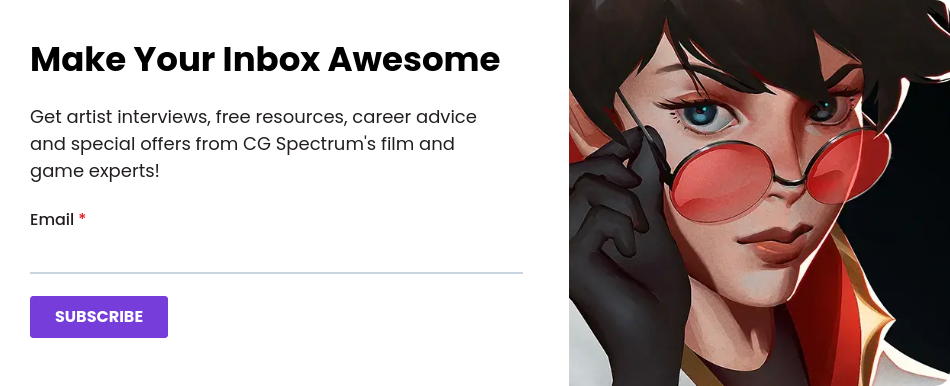If you think playing video games is fun, imagine being the person who gets to design them! It’s a challenging but rewarding role that takes determination, talent, and a unique skill set. In this article, we’ll discuss the dynamic world of video game design and share some expert tips for entering this career path.
What is game design?
Game design encompasses a large portion of the creative side of video game development and is not to be confused with the more technical role of game programming. Where game programmers use code to address the technical challenges of gameplay, as a game designer, you focus on developing the storyline, characters, rules, and environment of gameplay. (Read more about the differences between game design vs. game programming on our blog).
Common types of game design
Game design varies slightly depending on the platform the game is made for. The changes are usually related to how players interact or control the game and/or the resolution you’re designing for. The three main types are:
- Console games: played through a physical “box” that is connected to a monitor or TV (like Xbox or a PlayStation).
- Mobile games: played on a smartphone or tablet computing device.
- Computer games: downloaded to a PC or Mac computer or played off a removable media device like a CD.
Recent CG Spectrum student game design showreel.
What does a video game designer do?
Game designers are often visual thinkers. Their job is to visualize new concepts and ideas for the game. You might suggest narrative and animations for cut scenes, plan possible paths a player might encounter, and conceptualize characters and worlds to support the narrative.
As a game designer, you may be responsible for:
- Developing the storyline, character back-stories, and dialogue
- Developing gameplay, rules, and the scoring system
- Determining the level of difficulty
- Building interfaces and environments
- Level and world design
- Programming/scripting
- Extensive documentation of game processes and procedures
CGS Game Design Curriculum Manager Troy Dunniway (Microsoft, Sony, Disney, EA, UBISOFT, Samsung) explains the diverse role of a game designer.
What skills does a video game designer need?
Good video game designers have a mix of technical and creative skill sets. These skills will help you bring your vision to life on the screen. Knowing other aspects of the game development process also helps.
To be a good video game designer, you need an understanding of the following:
- Knowing what goes into a game to make it "fun"
- Gaming concepts, including game levels, level layouts, drawing maps, architecture, and other design areas related to game-level design
- The technical implementation within games, scripting languages, syntax, and other basic programming concepts
- Marketing and market research to understand what your target audience wants and how to sell it to them
- User interface (UI/UX) in games
It’s also helpful to have experience:
- Breaking down complex elements into systems
- Using data to get qualitative information to affect your designs
- Using your drawing skills to communicate ideas and storylines visually
- With 3D art, modeling, texturing, rigging, animation, and other areas of 3D art creation
Read more about the skills you need to become a game designer, according to video game industry veteran Troy Dunniway.

What tools does a video game designer use?
As a game designer, you will do most of your work on a computer unless you prefer doing some initial sketches or brainstorming on paper first. Unreal Engine (or a similar game engine like Unity 3D) will likely be your main playground for day-to-day game design. You’ll also want to learn other software, including:
- Spreadsheet and word processing software: You’ll likely need to use these standard word processing and spreadsheet software for documents, spreadsheets, and presentations. Microsoft Office and Google Docs are your most common options.
- Art software: As part of your job, you’ll be doing various types of visual design, flowcharting, and mind mapping. Knowing programs like Adobe Photoshop and Illustrator will be helpful.
- Bug tracking software: As you go through feedback and bug tracking, you’ll need an easy way to collect feedback from your team or reviewers. Use a robust bug tracker like Jira to make it easy to see the feedback, implement changes, and report back when the input has been accepted or rejected.
While not necessarily a “tool,” it will be helpful to understand various computer scripting languages and their tools because knowing how your designs will be implemented as code will make you a better designer. Knowledge of Python, LUA, C#, Unreal Script, Blueprints, and C++ programming languages can prove useful as a game designer.

Game design by Moura Melondeau for the Assassin’s Creed Valhalla at Ubisoft in Montreal, Canada
3 Steps to becoming a video game designer
If you’re ready to turn your love of games into a career as a video game designer, here are three steps to get you started:
1. Study game design
Understanding the game design process and its steps is vital for anyone wanting to work in the industry. Here’s a brief summary of the game design process:
- Pre-production (20%): including concept development, storyboarding, research and development, creating a game development document, mapping, and prototyping.
- Production (60%): including 3D modeling, level action, animation, texturing, lighting, interactivity, artificial intelligence, cinematics, and HUDs and Menus.
- Post-production (20%): including sound design and visual effects, QA, refining, packaging, and marketing.
The Game Design Course at CG Spectrum, an Unreal Engine Academic Partner and Authorized Training Center, will provide you with a solid understanding of the video game pipeline and processes. In nine months you'll learn how to:
- Pitch game ideas
- Design advanced game systems, maps, and assets
- Use Unreal Engine to build games
- Design AAA combat or shooter animations
- Implement complex AI in Unreal Engine
- Get support to create your game design portfolio and tips for tapping into the job market with support from career mentors
Justin interviews Senior Game Designer and CGS Mentor Daniel Pinch on The CG Spectrum Podcast about how to get hired in the video game industry.
2. Evolve your skill set
After learning the essentials in the Game Design Course, consider expanding your knowledge with further studies such as virtual production and game programming, which will help you become a better video game designer.
Troy Dunniway says, "As game designers, our ideas will often need to be implemented by a programmer, and the more that we can design and define our ideas in a way that they can be properly implemented, the better things will be for everyone."
Improving your artistic skills by taking a course in game art will also help you as a game designer and as a team player — even if it's just to help you better visually communicate your ideas. Beyond further study, there are other ways you can evolve your skill set, including:
- Play and deconstruct video games: see what makes a good video game by analyzing some of your favorites. What makes them so enjoyable? What would you change? Knowing why and how a game is fun is key to being a good game designer.
- Make a game with other students: CG Spectrum's bustling online community can offer some great opportunities for collaboration. By working on a game with your peers, you will gain valuable experience that you can take with you when you enter the industry. And you might even end up with a game you can show prospective employers!
- Build your soft skills: like communication and teamwork, which are vital components of any good game designer. The great thing is you can work on your soft skills at almost any job you do (and even while you're studying!), whether it's in games or not. Chat with your mentor or CG Spectrum's dedicated Career Development Manager to see how you can develop these essential skills further.
3. Get expert advice
Next, talk to video game designers already in the industry. Reach out to your network and do informational interviews with designers in niches you’re interested in. You can learn a lot from these people and make valuable future career networking connections.
CG Spectrum's courses are taught by people with real industry experience, who've worked at studios like Ubisoft, Blizzard, Electronic Arts, and Epic Games, and who know the production pipeline not just in theory but in practice. You'll have access to these experts via your lessons and as part of CG Spectrum's broader online community; so you can seek out real-world stories, advice, and tips to help you break into the industry.
Become a video game designer! Start by studying at CG Spectrum
Are you ready for a fun and creative career as a video game designer? Start your career journey with CG Spectrum and learn the art of video game design from industry experts. Choose from a small class (max. 4 students) or 1-on-1 private lessons for greater flexibility, a custom learning experience, and a maximum level of mentor interaction and support.
Related Links
- Game development career pathways
- Game design courses
- Game programming courses
- Expert Panel: The Future of Games





